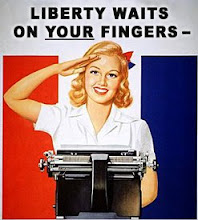That's how the first amendment reads.
So Congress can't limit freedom of speech or of the press, but what about corporations?
As I've been firmly planted on my bed or on the couch (thanks to an ankle infection) for a couple days now, I finally decided to catch up on some Comms 101 reading. This past week in class we were discussing Media Ethics. I've found it all very intriguing and thought provoking.
Henry Luce, founder of Time magazine formed a commission that sought to study the press' responsibility within the United States. The commission was headed up by a scholar named Robert M. Hutchins. In the textbook, Mass Communitcation, Robert E. Hanson summarizes the commission's findings:
...the commission concluded that the First Amendment, by itself, might not be enough to protect the free speech rights of the public because a small number of corporations controlled a large number of the available communication outlets. Although the government might not be limiting free speech, corporations might do so.
Hanson further suggests that, "This problem of a conflict of corporate interest extends beyond suppressing stories; it also involves actively promoting the company's interests."



What does all this mean for up and coming journalists? If we choose to follow the idea that it is a journalist's prerogative to deliver the truth to the masses, to give meaning and understanding to news, how can we be independent when dependent upon "the man"? I don't know what I am trying to say...I just found this idea interesting.







1 comment:
I worked for The Source Magazine this summer down in New York. It's a hip-hop magazine, and I wasn't really into hip-hop or what it stood for--really I was just into internships. While I was there they issued me an article in which I was to write about how Londond is becoming a police state and America is following. London's situation is, undoubtedly, precarious. But after speaking with the spokeswoman for NYC's Raymond Kelley I realized how America really isn't in danger of what London is experiencing, and that the article that I'd written was far too dramatic and doomsday and 1984-esque. My editor refused to allow me insert any quotes that downplayed this hysteria--it's not good busisness to present both sides. So more than simply a corporation having sway over its journalism, the very nature of news media, that it is unsubsidized and as much as a business as life insurance, that is where the greatest distortion in the story occurs.
Post a Comment